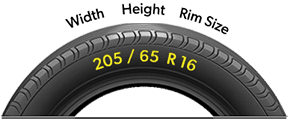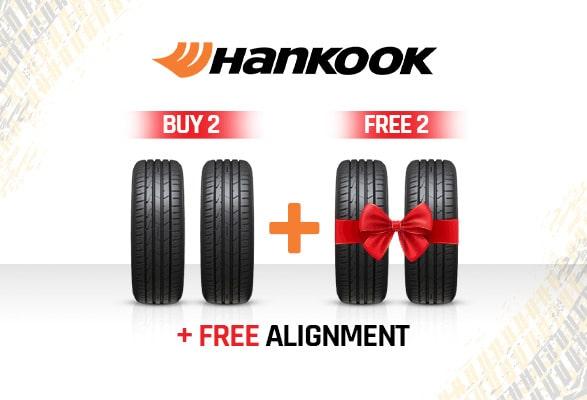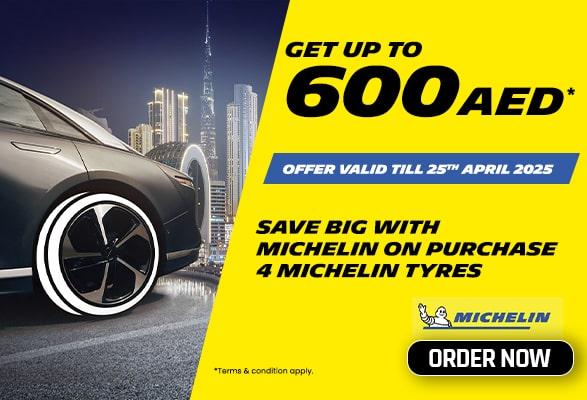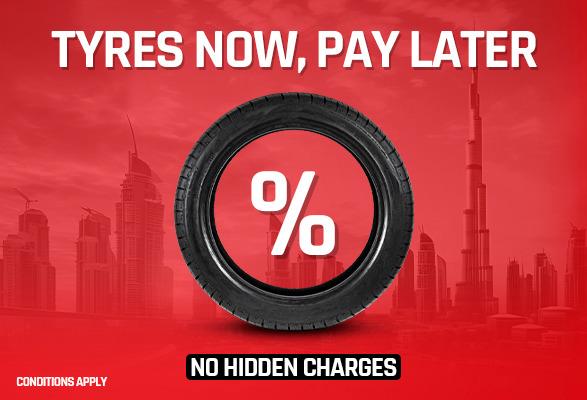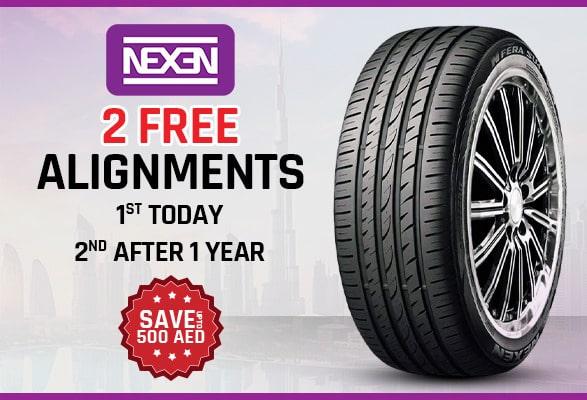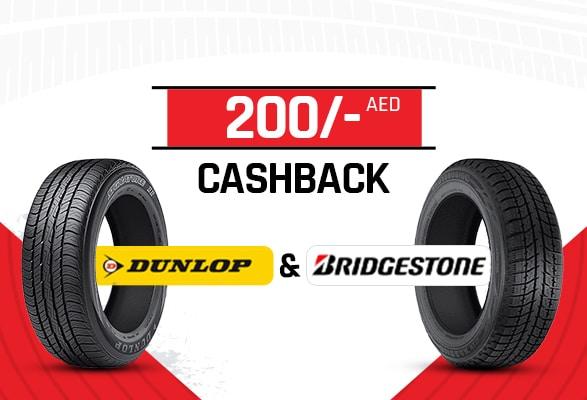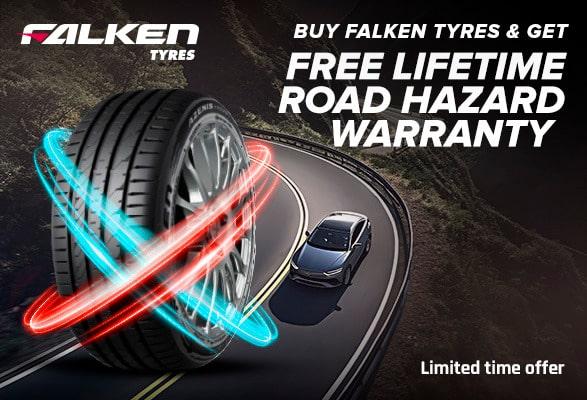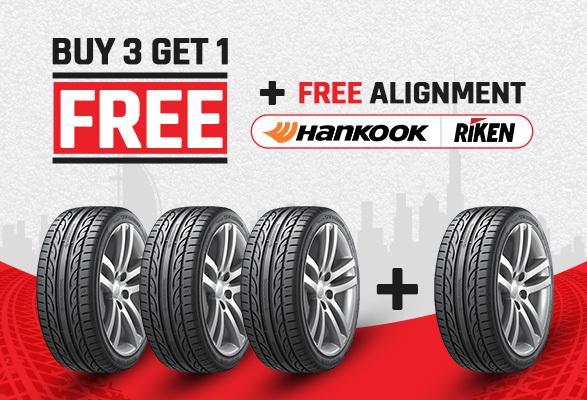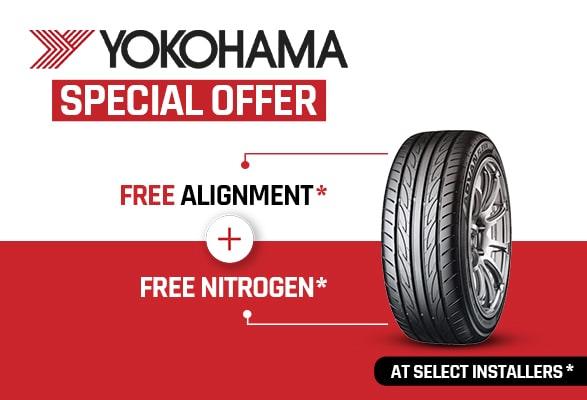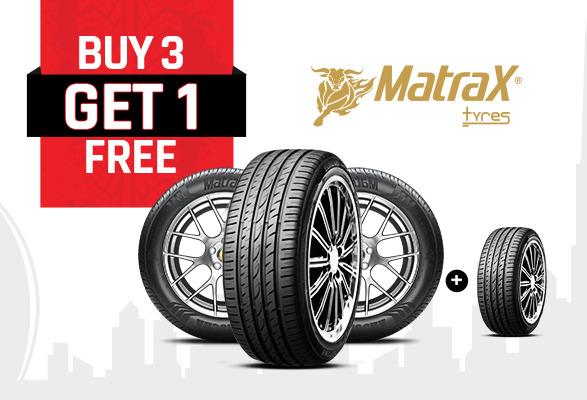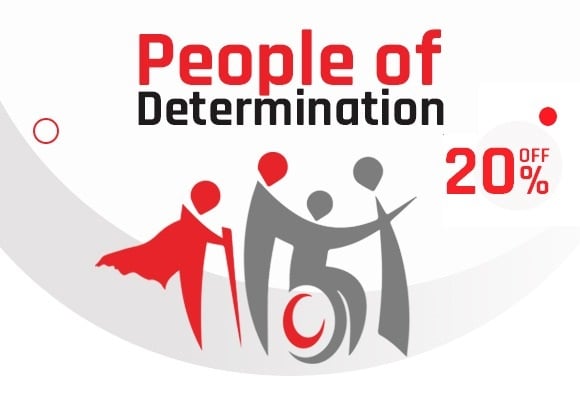FAQs: Tyre Problems
UAE's roads can be tough on tyres. From flat fixes to tread wear, this blog answers your tire problems questions! Learn UAE tire laws, safety tips, and how to find reliable shops.
General Tire Care and Maintenance:
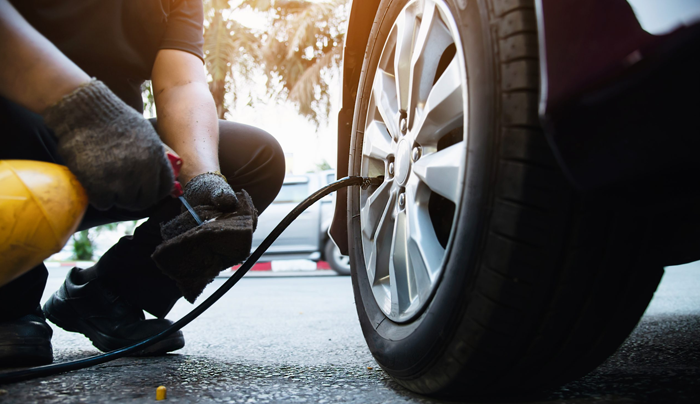
How often should I rotate my tires?
In the UAE, rotating your tires every 5,000 to 10,000 kilometers (3,000 to 6,000 miles) is generally recommended. This helps ensure even tread wear and extends the overall lifespan of your tires.
What is the recommended tire pressure for my car in the UAE?
The boiling UAE heat can have an impact on tyre pressure. This is a quick guide:
- Your car's owner's manual has the most accurate recommended tire pressure for your specific vehicle.
- Many cars include a sticker on the driver's door jamb indicating the recommended pressure for cold and hot inflation.
- Remember to inflate tires while they are cold (not driven in at least 3 hours or less than a mile).
How do I check my tire tread depth?
You can check tread depth by tread depth gauge and tread wear indicator. The UAE's legal minimum tire tread depth is 1.6 millimeters (mm).
What are the fines for driving with worn-out tires in the UAE?
Drivers in the UAE who are caught with worn-out tires face:
- Fine: AED 500
- Black Points: 4 black points added to your driving license
- Vehicle Impoundment: Your vehicle could be impounded for one week
Choosing the Right Tires:
What type of tires are best for the UAE climate?
The UAE's heat requires tires that can withstand extreme temperatures. This is a quick guide:
All-Season Tyres:
It's a good option for most drivers. Michelin, for example, offers all-season alternatives that work well year-round, coping with hot weather and the occasional UAE rain shower.
Summer Tyres:
Summer tires are ideal for areas with high temperatures. They provide improved grip and handling in extreme heat and may last longer due to their specialized ingredients.
Note: Winter Tires are Not necessary! The UAE's climate doesn't require winter tires.
Choosing the Right Option:
Consider your location, driving style, and money. Consulting PitStopArabi or any other tyre professional can assist you in selecting the best car tyres or similar manufacturers for your UAE driving needs.
What is the difference between P-metric, LT, and ST tires?
Here are the key differences between P-metric, LT, and ST tires:
- P-metric: Ideal for everyday driving in passenger vehicles where comfort and fuel efficiency are priorities.
- LT: Perfect for light trucks, vans, and SUVs that regularly carry heavy loads or tow trailers, requiring increased load capacity and durability.
- ST: Essential for trailers to ensure they can safely handle the weight of the cargo and provide adequate stability while towing.
Do I need winter tires in the UAE?
No, you don't need winter tires in the UAE. The UAE climate is hot and dry year-round, with minimal chance of encountering winter weather conditions that necessitate the specialized grip and performance of winter tires.
How do I read and understand tire size markings?
Understanding tire size markings can seem like deciphering a code, but it's quite simple. Here’s an example: 225/55R17
- 225 = Tire width in millimeters (mm)
- 55 = Aspect ratio (%) of width that's sidewall height
- R = Radial construction (most common)
- 17 = Rim diameter in inches (matches your wheel size)
What should I consider when buying new tires?
To buy new tyres, consider:
- Your car: Use the recommended size (check manual or door sticker).
- Your needs: All-season for comfort, summer for hot areas (winter not needed).
- Tyre features: Reputable brand, good treadwear rating, warranty.
- Price & installation: Set a budget, and get professional installation.
Where can I find reliable tire shops in the UAE?
Look no further than PitStopArabia! We offer a wide selection of tires, expert installation, and convenient online ordering. Contact our professionals for your query and to buy tyres online.
Tire Safety and Regulations:

How often should I get my tires inspected in the UAE?
To ensure your safety and maximize tire life, get your tires inspected regularly. A good rule of thumb is to perform a visual check at least once a month. Before embarking on long road trips, it's wise to have a professional inspect your tires for any hidden damage.
Additionally, any time you hit a curb or encounter a significant pothole, get your tires checked to identify potential issues that might not be immediately apparent.
What are the dangers of driving with damaged or underinflated tyres?
Driving with damaged or underinflated tires in the UAE can lead to:
- Blowouts: Underinflated tires generate more heat due to more friction.
- Reduced Handling: Damaged or underinflated tires can compromise your vehicle's handling, making it less responsive during turns or emergency maneuvers.
- Premature Tire Wear: Uneven tread wear and faster degradation are common consequences of improper tire inflation or damage.
- Lower Fuel Efficiency: Underinflated tires create more rolling resistance, forcing your engine to work harder and reducing fuel economy.
What are the UAE laws regarding tyre age and replacement?
According to the Road and Transport Authority (RTA), car tires can be used for five years from the date of manufacture. This rule applies irrespective of the condition. As a result, if you intend to replace car tires, make sure the manufacturing date of a new tyre set is no more than 150 days.
Replace tires when tread depth hits 1.6mm (legal minimum) or if they show damage, even if they seem new.
Can I use a spare tire for long distances?
Relying on a spare tire for long journeys isn't recommended. Spare tires are lifesavers for getting you off the road after a flat, but they're not designed for extended use. Their lower speed rating means highway speeds could be risky, and their smaller size and lighter construction can affect handling, especially over long distances.
What should I do if I get a flat tire on the road in the UAE?
First things first, safety! Find a safe spot off the road, like the hard shoulder, and turn on your hazard lights to warn other drivers.
Now, assess the situation. If it's a minor puncture, you've got a handy repair kit in the trunk. You might be able to patch it up yourself.
But if you're not sure or feeling a little shaky. Call roadside assistance - many UAE car insurance plans offer it. They'll send a technician to swap your tire or tow you to a friendly repair shop.



